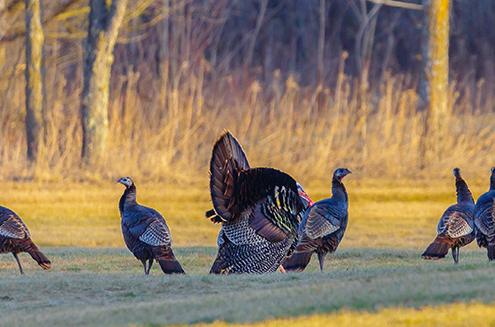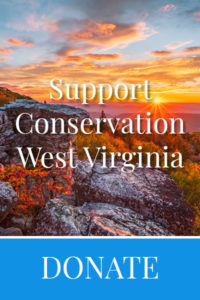 https://www.conservewv.org/wp-content/uploads/2020/07/turkeys.jpg
327
1000
Neal Barkus
http://www.conservewv.org/wp-content/uploads/2020/03/CWV-logo.png
Neal Barkus2020-07-23 10:00:282024-03-21 08:23:19Congress Passes Historic Great American Outdoors Act
https://www.conservewv.org/wp-content/uploads/2020/07/turkeys.jpg
327
1000
Neal Barkus
http://www.conservewv.org/wp-content/uploads/2020/03/CWV-logo.png
Neal Barkus2020-07-23 10:00:282024-03-21 08:23:19Congress Passes Historic Great American Outdoors ActMountaineers are outdoor people.
Hotter temperatures are stressing our woods and waters.
Fishing
West Virginia’s iconic fish is the brook trout, and there are other trout in our streams. Trout are coldwater fish. It is easy to understand what happens when streams get warmer. Warmer stream temperatures create thermal stress, making native trout less competitive with non-native species.
Warmer stream temperatures can promote the spread of diseases and parasites that affect trout. And warmer air temperatures increase rainfall and flood intensity. When this happens in late autumn and winter, eggs and some young fish are vulnerable to scouring from turbulent water and sediments.
Our mountains are coldwater fish habitats, but these habitats are expected to disappear in this century unless overheating can be controlled. Reducing carbon pollution could preserve coldwater habitat in Appalachia for our kids and their kids.
The Great Outdoors
Change is already happening in West Virginia’s outdoors. Snow season is shrinking and becoming even more unpredictable, with more lost days in peak season. Whitewater rafting and kayaking are already facing disruptions. Paddling small creeks and even some rivers in summer is iffy — most days the water is just too low.
This is the impact of overheating. It’s the new normal: weeks without rain followed by storms dropping several inches in a few hours. Trail running and cycling on all these days above 90 degrees can be dangerous for some people. Summer camps are increasingly keeping kids indoors on hot days.
Forests and Fires
Forest fires don’t just happen in California. They happen right here in West Virginia. And they threaten some of the most precious natural gifts in our state.
- Through November of 2023 there had been 916 fires in West Virginia burning approximately 11,340 acres — in one year.
- The Steep Valley fire burned over 2,200 acres in the New River Gorge National Park.
- The “967” fire in the Monongahela National Forest in Pocahontas County burned approximately 145 acres.
An overheated atmosphere doesn’t cause fires, but it does increase wildfire season length because of warmer springs and longer, dryer summer drought periods. Warmer air also sucks moisture out of leaves and brush. Drought conditions make vegetation ignite more easily.
In West Virginia, forests are our heritage. We need to protect and preserve them for future generations.

